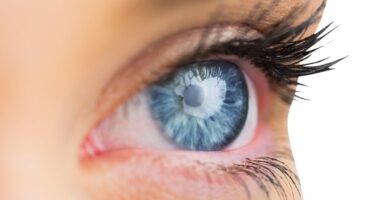Share this @internewscast.com
A Maine resident has been hospitalized with the year’s first human case of the rare tick-borne Powassan virus.
Maine Center for Disease Control and Prevention (Maine CDC) reported the hospitalization of the unnamed Hancock County resident this week, noting the Powassan virus as the cause of illness.
The rare virus, spread from animal to human, usually via a tick or woodchuck bite, can cause a dangerous brain virus for which there is no cure, no vaccine and no known antiviral treatments.
When Powassan virus (POWV) spreads to the brain it can cause inflammation in the brain and membranes surrounding the brain and spinal cord.
The CDC notes that 10 percent of patients with Powassan virus neuroinvasive disease die and half of survivors have long-term neurological complications such as memory loss and muscle weakness.
In 2024 there were 57 Powassan virus human cases resulting in 6 deaths.
There is no information on the patient’s health other than that they developed neurologic symptoms.
The Maine case comes as experts say this year is the worst tick season on record due to a milder winter across the US, which allowed more ticks and their animal hosts to survive the winter months.

A Maine resident has been hospitalized with the year’s first human case of the tick-borne Powassan virus

Powassan virus human disease cases reported by area of residence from 2004 to 2024
In line with other tick-borne diseases, human cases of Powassan virus have steadily risen over the past decade in the US, a trend some say is linked to climate change and clearing more land for development.
Infections are increasing across the midwest and northeast and are most common in the summer months when ticks are active.
Following the Powassan virus case in Maine, the CDC is warning residents and visitors to the state to take care in areas ticks might be present to prevent themselves from getting bit.
Powassan virus is named for the city it was discovered in, Powassan, Ontario, where it was discovered in a young boy in 1958.
A person will often feel symptoms of the virus somewhere between a week and a month after the tick bite.

Along with other tick-borne disease, human cases of Powassan virus have steadily increasing over the past decade in the US, a trend some say is linked to climate change and clearing more land for development
Initial symptoms can include fever, headache, vomiting, and generalized weakness.
The disease can then spread to the brain and cause inflammation.
When it reaches this stage some of the more severe symptoms include an altered mental status, seizures, speech problems (aphasia, dysarthria), paralysis, and movement disorders.
The Maine resident was reported to have suffered severe neurological symptoms as a result of their infection. They are currently receiving treatment for their infection in a hospital.
The CDC reports that a majority of people that are infected with the virus are asymptomatic.
The government agency has reported 397 cases of the virus since 2004 and 50 deaths.
Nationwide, cases have been steadily increasing year over year, with the highest number of patients in 2024 at 57.
Cases of the Powassan virus are extremely rare.
In Maine, less than 20 have been reported over the last 12 years, though the prevalence of asymptomatic infections means the figure is likely an undercount.
In the US, the most common tick-borne disease is Lyme disease with more than 470,000 new cases but only a small fraction of these cases result in death.
While Lyme disease is the most prevalent, there are at least 20 other tick-borne diseases in the US, including anaplasmosis, babesiosis, ehrlichiosis, and Rocky Mountain spotted fever.
Ticks aren’t the only threat, however.
Mosquito-borne diseases such as West Nile virus and dengue fever are also becoming more prevalent due to the rising temperatures and changing rainfall patterns.
West Nile virus is currently the leading cause of mosquito-borne disease in the US. Just this week, mosquito samples from two cities in Ohio tested positive for it.
So far this year, there have been 98 human cases of West Nile virus in the US, including 53 severe or ‘neuroinvasive’ cases.
Meanwhile, the US declared dengue outbreaks in 2024 that have continued into 2025.
Local transmission of dengue was reported last year in California, Florida, and Texas. Florida has reported local dengue transmission in 2025 with four confirmed cases of ‘locally acquired’ dengue found in Brevard County.
So far in 2025, there have been 2,553 cases of dengue fever.
















